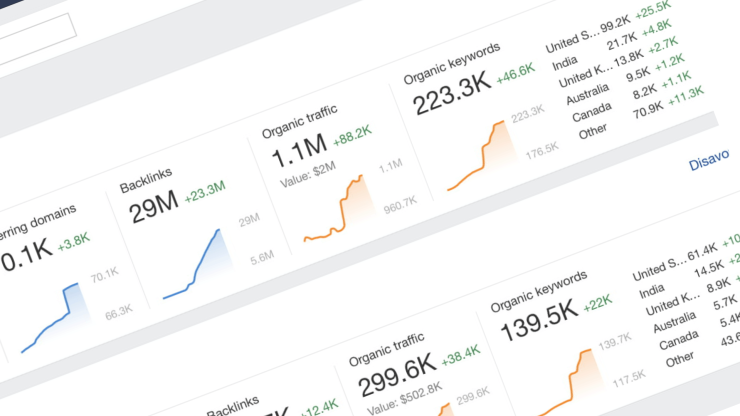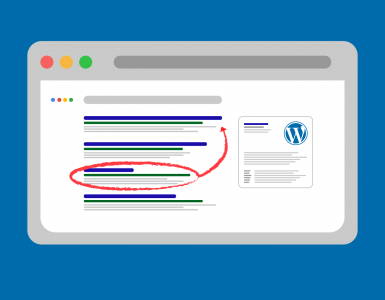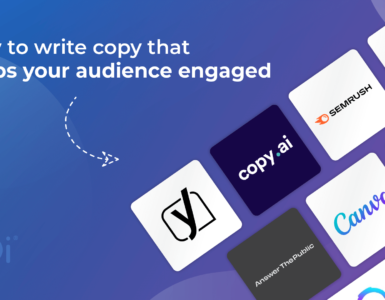SEO is an extremely broad topic. From content & keywords, down to the most in-depth technical audits, there is a wide variety of areas to cover if you want to learn SEO.
With so many tools and learning resources to choose from, finding the right ones for you can be a bit of a minefield.
We work hard on SEO ourselves here at 20i – we’ve used a wide array of tools and watched hours of webinars – and we have our favourites.
So, to help you out if you’re looking for some inspiration, here are the SEO tools and resources we utilise here on 20iLet us know your favourite SEO tools or blogs in the comments below.
Ahrefs
I’m personally a huge fan of Ahrefs and it is the go-to SEO software for a lot of our research and performance monitoring.
It isn’t cheap, and I wouldn’t use it for non-revenue generating websites, but it is packed with powerful features and useful tools.
I much prefer the UI and UX of ahrefs to the likes of SEMRush and Moz, which I’ve both used and have never felt as comfortable interacting with the data.
The reports we use a lot include:
Keyword research
Ahrefs keyword research tool is one of the most advanced out there, with loads of options to expand the data or drilldown further.

As you can see below, web hosting is incredibly competitive with a very high difficulty score (Keyword Difficulty gives an estimate of how hard it is to rank in the top 10 organic search results for a keyword on a 100-point scale).
Also, ‘web hosting uk’ is a more popular search term than ‘uk web hosting’:

Site Audit
Ahrefs will crawl all the pages on your website and flag any SEO issues it finds, as well as recommendations on how to fix them.
Example from ahrefs’ website using NASA
The reports cover issues related to:
- Performance: slow pages, too-large CSS or HTML
- HTML tags: missing, duplicate or non-optimal length of title tags, meta descriptions and H1 tags
- Social tags: incomplete or missing Open Graph tags and Twitter cards
- Content quality: low word counts, unconsolidated duplicate pages
- Localization: all issues with Hreflang
- Incoming links: detecting orphan pages, issues with nofollow links
- Outgoing links: detecting links to redirects, broken pages
- Resources: issues with images, JavaScript, CSS
We’ve set up a daily report to make sure any issues that may crop up are identified and fixed asap.
Backlinks
How many new links have we gained in the past x days?
A lot of these links come naturally, but we do occasionally conduct a bit of outreach, especially when we publish something meaty like the web designer survey.
This report let’s us know how successful that has been.

Although proprietary and totally unconnected to Google’s ranking algorithm, the ‘Domain Rating’ metric is useful to gauge how much ‘authority’ a linking domain has, the higher the better.
This report isn’t limited to your own site. It can also be used to track competitors’ links and identify opportunities for your brand.
Best pages by incoming links
This report is great for identifying your top pages by external links (do more content like that) as well as other sites’ links.

With this information you can apply a few well-trodden tactics to acquire some of those links yourself (skyscraper technique anyone?).
Limitations
Although ahrefs is an important part of our SEO tool set, it isn’t perfect.
The biggest downer is the frequency of updates for your tracked keywords’ SERP rankings.
At best you’ll get updates every 3 days on the agency plan, which is a whopping $999 per month.
To plug that gap, we use SERanking for daily updates.
SERanking
We use SERanking to monitor how our target keywords are performing in Google’s SERPs daily. Are there any unwelcome drops we need to investigate or are there are increases thanks to changes we’ve made?
Getting set up is easy, and the interface is clean and easy to use.
Unable to insert the picture
It also comes with website audit, backlink checker and social media management tools, but we don’t use those.
Other keyword research tools
It’s always good to get second opinion, so sometimes we make use of SEMrush, AnswerThePublic, and AlsoAsked. These all present results in different ways – for example, some of these concentrate on questions – but they can help to widen your scope.
Schema markup tools
We have developed our own Schema generator which can be used for free by anyone and it’s the only one that includes entity and website hierarchy markup.

With just a few clicks and inputs it will spit out valid schema markup for you to add to your site.
SEOReviewTools.com
Like the above, SEO Review Tools includes lots of free online tools. It’s useful for ‘filling in the gaps’ in our toolset. For example, they offer a useful keyword density checker to make sure that we’re not over-optimising to the point of getting spammy!
Google’s tools
Google Search Console (GSC) provides us with insight in to how successfully Google is crawling our content along with how we are performing against the market (search impressions and clicks).
We tend to use GSC to identify the areas where we could improve, such as Core Web Vitals, schema and mobile usability.
We use Lighthouse to test page speed – more information about that tool here.
For diagnosing Cumulative Layout Shift, we use web.dev’s CLS debugger. This is really useful for our developers to narrow-down the source of a poor CLS score.
Screaming Frog
This site crawler – or ‘SEO spider‘ – offers great bulk metrics about our website, for example, if we want to know PageSpeed Insights scores of all our pages.
It’s most well known for being able to find broken links on sites. This is useful for looking for link opportunities. It has a bunch of other features – too many to list here! It’s available in both free and paid versions.
20i Website Acceleration Suite
Pagespeed is a key part of SEO, and a large part of this is underpinned by the size of your web pages and avoiding bloat.
As such, we created our very own 20i Website Acceleration Suite – a tool which is included for free in all of our hosting
The website acceleration suite improves website load times by automatically implementing web performance best practices to a website. This includes optimising images, JavaScript minification and combining CSS – all to improve website load times and the Google PageSpeed Score. This in turn positively impacts SEO and helps you develop high-performing websites at scale.
SEO Pro
SEO Pro is a simple Chrome extension, which can be used to quickly and easily to check the basics of a page, such as headings, alt-text and schema.
SEO blogs we read
Because we’re huge marketing nerds (and because it is our job) we regularly check in with top SEO blogs/news sites to get the latest news and ideas.
There are countless SEO blogs out there, so here are the ones we’d recommend checking out:
- Search Engine Roundtable: Focuses just on the latest SEO news, no ‘how to’ guides or filler
- Ahrefs blog: Packed full of in-depth practical ideas to improve your SEO
- Backlinko: Not as frequently updated as it used to be but there’s loads of really good content to go through
- Google Search Central Blog: Get the news straight from the horse’s mouth as well as future developments
- Marie Haynes: Specifically if your site is heavily impacted by EAT or in a YMYL sector
SEO Blogs
Newsletters and the other sources above are a good way to keep up to date with the recent chatter in the SEO community. But for diving deeper into the nitty-gritty of a topic, blogs offer often a more detailed view and analysis.
First is the blog from Olaf Kopp – https://www.kopp-online-marketing.com/blog. Olaf is well known in the German SEO scene and recently started publishing his content in English – it’s really worth reading.
Go Fish – https://gofishdigital.com/gfd-blog/ – this blog covers a lot topics in digital marketing and publishes content from various experts in the industry. One of them was Bill Slawski, who was the founder of SEO by the Sea, where another good blog can be found – https://www.seobythesea.com/ .
You shouldn’t miss out on reading the blog of Amsive Digital – https://www.amsivedigital.com/insights/ – insights into to the changes in SEO by Lily Ray and her team.
SEOs on Social Media – who to follow
Some SEOs and publications have big followings across social media, often sharing tips, case studies, opinions, and other golden nuggets.
Here are the ones we love following:
- Rand Fishkin – One of the most famous names in digital marketing, Rand Fishkin founded Moz, one of the most ubiquitous SEO tools of the 2010s. Now on his second startup Sparktoro, Rand shares regular discussions on his X (Twitter) & Linkedin pages, covering SEO and wider marketing & tech topics.
- Cyrus Shephard – Another Moz alumni, Cyrus Shephard regularly shares interesting information on X & Linkedin, often focusing on SEO testing and studies such as the impact of internal links.
- Aleyda Solis – One of the worlds foremost SEO experts, Aleyda Solis shares great insights into technical & international SEO.
- Daniel Foley Carter – Daniel has over 70,000 followers on Linkedin, where he provides information from his extremely in-depth site audits. He also sometimes shares webinars clocking in at multiple hours in length.
- Danny Sullivan – Danny has been in the SEO business for over 25 years. Starting off as founder of marketing publication Search Engine Watch, and now works as Search Liaison for Google. He can often be found on X interacting with members of the SEO community, providing information (and plenty of denials) about the Google algorithm.
- John Mueller – Another voice from Google, John Mueller is a senior search analyst and leads the search relations team lead. He can often be found on X providing information to users on how best to navigate the changes in Google search results.
- Mark Williams-Cook – Mark is the founder of the popular keyword research tool AlsoAsked, along with owning his own digital agency. Mark shares great tips on X, and Linkedin. We’ve also interviewed Mark for the 20i blog, which you can read here.
SEO Newsletter that are worth reading:
Aleyda Solis: #SEOFOMO
Aleyda Solis has won several awards over the past years and has established herself as one of the most respected experts in the world of SEO. Her weekly newsletter #SEOFOMO is one of the few that doesn’t pitch her own service and delivers useful insights and tools:
Google Developers Newsletter
If you want to know what is happening at Google, what better place to look at their own newsletter? Stay up to date with changes and development and get all the Info directly from the big guys.
https://developers.google.com/newsletter
Search Engine Land
If you need the daily buzz (and can handle it) of what is happening in Search – Search Engine Land serves you with a daily roundup of the news and stories around SEO and Digital Marketing. A lot (I mean really a lot) of information, provided by some of the big names in our industry.
These are great sources of information to stay on top of what’s going on in the always evolving SEO universe.
If you’d pefer a more light hearted, easily digestible way to keep your finger on the pulse, then SEO YouTube channels and podcasts may be for you.
Best SEO YouTubers and Podcasts
As SEO’s, we like our written content, but there are also tons of vlogs, channels, and podcasts available to keep you informed too.
Google Search Central on YouTube
Straight from the horse’s mouth. You can watch the Google SEO Office Hours and Google Search News with John Mueller and find lots of other valuable info on this channel. Google can often be slightly reserved with how much information they’re willing to share with people, but if it comes from any of these sources then you know it’s official.
https://www.youtube.com/channel/UCWf2ZlNsCGDS89VBF_awNvA
302 of a kind
Every Friday at 4pm (CET) before we 302 off on the weekend, Marcus Tandler and Izzi Smith round up the week. An entertaining hour with jokes and beers but nevertheless some serious reviews of what is going on in and around the world of SEO. It’s broadcasted live on YouTube, LinkedIn and Facebook.
Authority Hacker Podcast
SEO nerds chat with peers. The really nice thing about this podcast is, that it features examples and case studies showcasing a lot of practical tips.
With Jason Barnard
What it says on the tin. Podcast with Jason Barnard (aka The brand SERP guy). Discussion with guests (mostly well known in the industry) on SEO and wider digital marketing topics.
Rankable
Host Garrett Sussman discusses everything SEO and digital marketing with his expert guests.
20i SEO guides
We’ve also produced some great, in-depth guides to help you improve your SEO:
- The ultimate guide to image optimisation
- Boost your WordPress site SEO
- Mobile first index testing
- Guide to sitemaps
No one knows it all!
There’s a whole goldmine of information to be found within these sources, but it’s important to remember that nobody knows it all. No matter how good you are, I don’t think anybody can cover all the vast variety of topics that are needed to be successful by themself. SEO is such a broad, rapidly changing, and sometimes vague topic, that sometimes there isn’t always an answer to your question!
Over to you
Are there SEO-related tools/blogs that you use that you’d recommend? Any that you wouldn’t? Do you prefer to dive into keyword research, or is fixing technical errors your bag? Let us know in the comments below.













Nicely put together.
We use both Ahref and SEMrush in tandem. Ahrefs for Backlinks and Keyword Research and SEMrush for everything else. But I certainly can relate to these burning a hole through your pockets.
The cost can soon mount up. Why do you prefer using ahref’s backlink and keyword data?